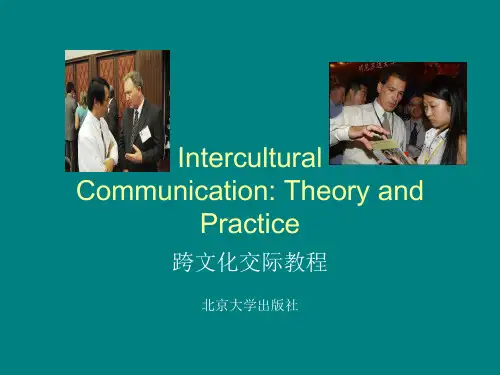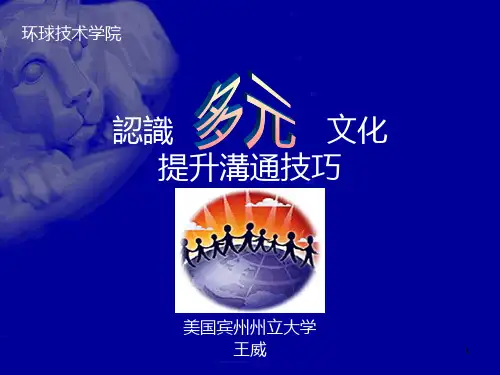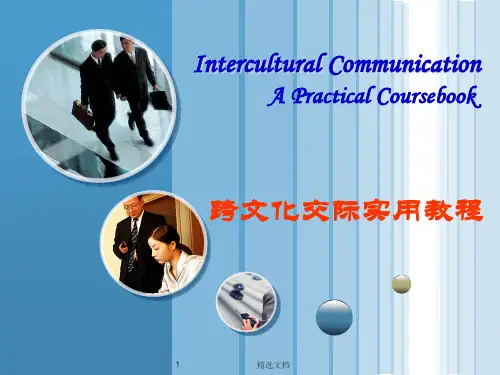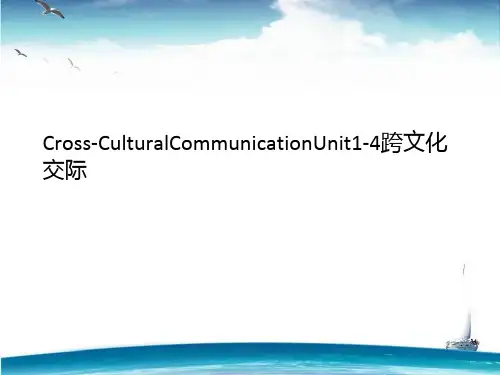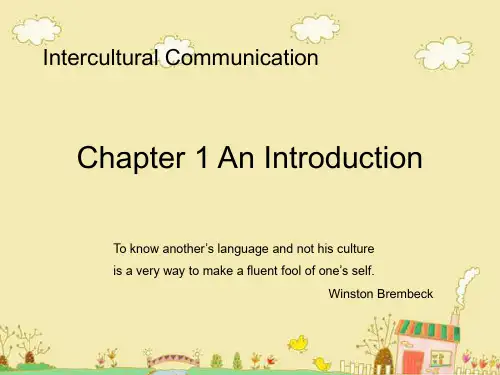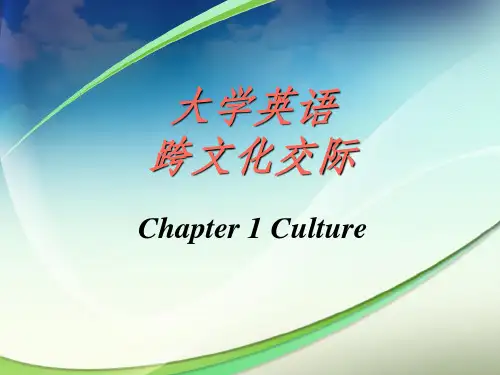- 1、下载文档前请自行甄别文档内容的完整性,平台不提供额外的编辑、内容补充、找答案等附加服务。
- 2、"仅部分预览"的文档,不可在线预览部分如存在完整性等问题,可反馈申请退款(可完整预览的文档不适用该条件!)。
- 3、如文档侵犯您的权益,请联系客服反馈,我们会尽快为您处理(人工客服工作时间:9:00-18:30)。
• Communication requires coding and symbols that are learned and shared. (Smith, 1966)
*
Definitions
• International communication communication between governments or among nations
• Intracultural communication communication between members of the same culture
• Global business communication communication between businesses from different countries
• Grobalization—focuses on the imperialistic ambitions of nations, corporations, and organizations to impose themselves on others
*
Dimensions of Culture
Globalization, Glocalization, and Grobalization
• Globalization—the worldwide diffusion of practices
• Glocalization—the interpenetration of the global and local
• Mindsets - ways of being that allow us to see, perceive, and reason through our own filter
*
Dimensions of Acculturation
• Integration - persons become an integral part of the new culture while maintaining their cultural integrity
Languages (codes/modes)
Verbal Nonverbal
Physical
ological
Environment Human Behavior Content
Processes
Natural Man Made
Knowledge Belief Encoding Systems Decoding Thought
1-*
Example of
Miscommunication
• Telex sent to a factory manager of a U.S. subsidy in Lima, Peru:
• “Please send a headcount of the people in your factory and in your office, broken down by sex. Information urgent.”
From Borden, 1991, 171 *
Describe the U.S. or another Culture Using Borden
• Language – Verbal – Nonverbal
• Psychological – Content • Knowledge • Belief Systems – Processes • Encoding Thought • Decoding Thought
1-*
Communication and Culture
• Communication and culture are inseparable.
• Culture is a code we learn and share.
• Learning and sharing require communication
• Stereotypes are perceptions about certain groups of people or nationalities, often based upon limited knowledge and/or exposure
*
Stereotypes of U.S. Persons
cold, respect authority, hard-working
religious, quarrelsome, wealthy, greedy
*
Terms
• Enculturation - socialization process you go through to adapt to your society
• .9%
White Americans Hispanic Americans African Americans Asian Americans Amer. Indians & Alaskan Natives Native Hawaiians & Pacific Islanders Others
*
• Are very mobile
• Convey superiority in their actions
*
Stereotypes of Selected
Cultures (Japanese and U.S. Students)
Japanese
Americans
English Irish Chinese Mexicans Russians Israelis
*
• Intercultural business communication – interpersonal communication within and between businesses that involve people from more than one culture
• Melting pot - sociocultural assimilation of people of differing backgrounds and nationalities; implies losing ethnic differences and forming one large society (macroculture)
religious, faithful, warlike, Jewish
formal, proper, polite, intelligent
drinkers, jovial, hot-tempered, loud
quiet, industrious, smart
lazy, poor, loud, dirty, uneducated
gentlemanly, polite
cold, patient, religious
diligent, serious ingenious, laboring
cheerful, passionate spicy-food eaters
cold, dark, closed, secret, selfish
• Diffusion - the process by which two cultures learn and adapt materials and adopt practices of each other
*
• World culture - the idea that as traditional barriers among people of differing cultures break down, one culture will emerge
– Frontstage culture - cultural information that you are willing to share with outsiders
– Backstage culture - cultural information concealed from outsiders
Chapter 1
The Nature of Intercultural Communication
Topics
• Globalization/glocalization/grobalization • Culture • Enculturation/Acculturation • Ethnocentrism • Norms, rules, roles, and networks • Subcultures and subgroups • Communication barriers • Multinational management orientations
• Globalization - the ability of a firm to take a product and market it in the entire civilized world
*
U.S. Census 2010
• 64% • 16% • 14% • 5% • .9% • .2%
• Acculturation - process of adjusting and adapting to a new and different culture
– Cultural synergy - two cultures merge to form a stronger overriding culture
– Multicultural - people who can move between two or more cultures very comfortably
• Ethnocentrism - the belief that your own cultural background is correct
